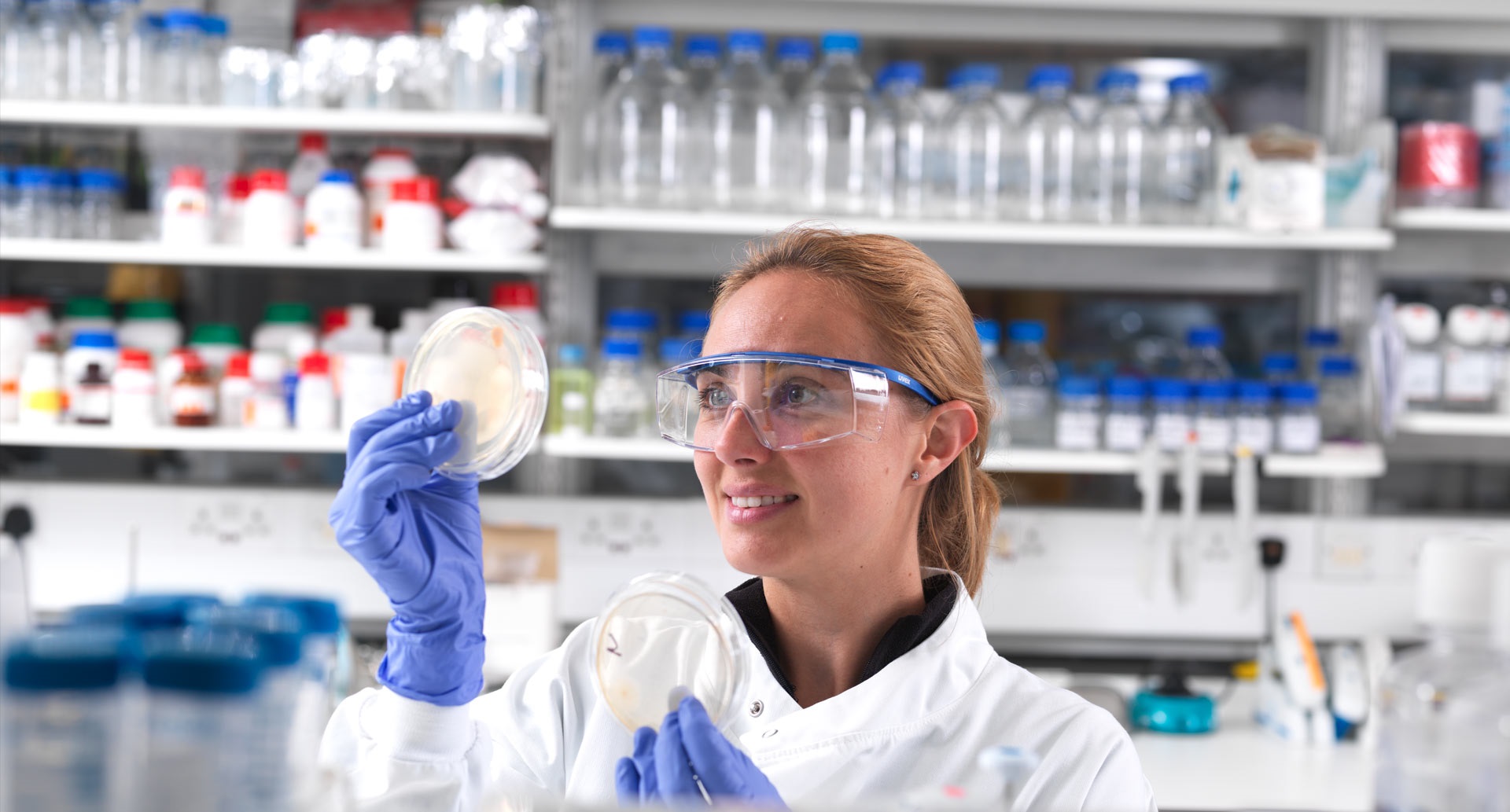Adaptive chemotherapy – a personalised approach to giving chemotherapy – can prolong survival in lab models of ovarian cancer, according to new research.
The findings could pave the way for a more effective and gentler approach to treating ovarian cancer that uses existing drugs in a more intelligent way.
Treatment resistance is common in ovarian cancer
Standard chemotherapy aims to destroy as many cancer cells as possible, using the highest dose a patient can safely tolerate. While this approach can shrink tumours in the short term, it often creates conditions that favour the growth of drug-resistant cancer cells.
Treatment resistance poses a particular challenge for women with ovarian cancer, around 80 per cent of whom see their cancer return within two years after treatment.
Adaptive therapy
A team led by researchers at The Institute of Cancer Research, London, and Barts Cancer Institute is exploring a new strategy called adaptive therapy. This involves giving patients smaller, tailored treatment doses, designed to maintain the tumour at a manageable level rather than trying to eradicate it completely.
The rationale is to preserve a population of cells sensitive to chemotherapy, which compete with resistant cells for essential resources such as oxygen and nutrients, slowing down the development of drug resistance.
In their new study, published in the journal Cancer Research, the team demonstrated that mice treated adaptively with the chemotherapy drug carboplatin survived significantly longer than those receiving standard treatment, even though the average daily dose of chemotherapy was the same.
Tailoring the dose of drug
By closely monitoring populations of drug-sensitive and drug-resistant tumour cells, researchers found that sensitive cells grow and outcompete resistant cells for limited resources, suppressing their growth and leading to resistant cell death.
The team also tested a new technique called LiqCNA, which could enable clinicians to monitor drug-resistant cells in real-time using a simple blood test. LiqCNA tracks genetic changes associated with resistance, and in a small group of ovarian cancer patients, it successfully detected the emergence of resistance.
Resensitising tumours to treatment
Professor Trevor Graham, Professor of Genomics and Evolution and Director of the Centre for Evolution and Cancer at The Institute of Cancer Research, London, said:
“I am very excited by the potential of adaptive therapy approaches, where we might be able to improve outcomes for patients simply by changing the dose of the drug according to how the tumour responds.
“In this study, we treated ovarian cancer cells in the lab until they were resistant to chemotherapy. When we then combined these cells with those that were still sensitive to chemotherapy, the resistant cells were outcompeted and weren’t able to survive. This tells us that tumours could potentially be resensitised to treatment by allowing the few cells still responding to grow and outcompete any resistant cells – either by pausing the treatment or reducing the dose. It worked in our lab models of ovarian cancer, and we’re now testing it for patients in a clinical trial.”
Professor Michelle Lockley at the Barts Cancer Institute is the Chief Investigator of the ACTOv (Adaptive ChemoTherapy in Ovarian cancer) clinical trial, the UK’s first adaptive therapy trial and the world’s first in ovarian cancer. ACTOv is currently recruiting participants from around the UK and aims to enrol 80 patients with ovarian cancer over two years, comparing standard carboplatin treatment with the adaptive therapy approach.
‘Using well-understood drugs more intelligently’
Professor Michelle Lockley, Clinical Professor of Medical Oncology and Honorary Consultant at Barts Cancer Institute, said:
“Adaptive therapy challenges the conventional paradigm for chemotherapy. It is appealing because it provides a safe, low-cost way to improve patient outcomes and reduce side-effects. Instead of requiring decades of drug development and huge investments, we can use well-understood drugs more intelligently.
"Women with advanced ovarian cancer often have limited options. After seeing such promising early results, bringing adaptive therapy directly to patients seemed the obvious next step. Our latest research provides crucial insights into how adaptive therapy works, informing our clinical strategies. Equally, seeing adaptive therapy’s impact in real patients will inform the questions we pursue in the lab in future.”
This work was made possible thanks to funding from Cancer Research UK, Wellcome Trust, Bowel Research UK and National Institutes of Health NCI. The ACTOv Trial is funded by Barts Charity and the Anticancer Fund.
